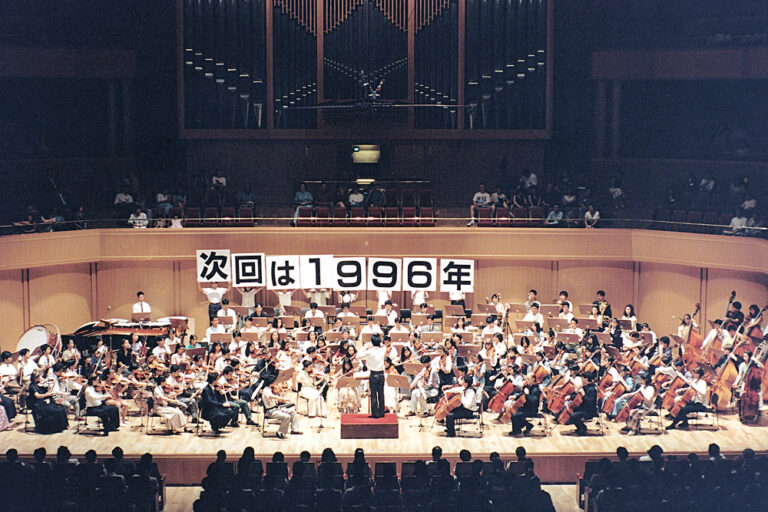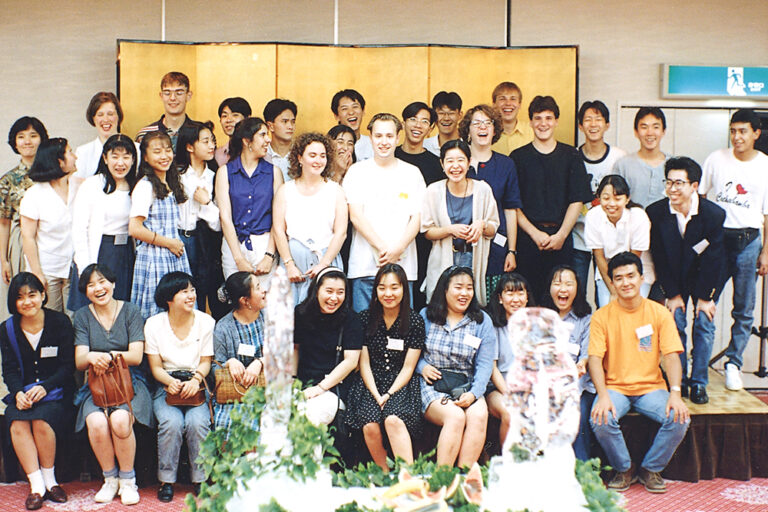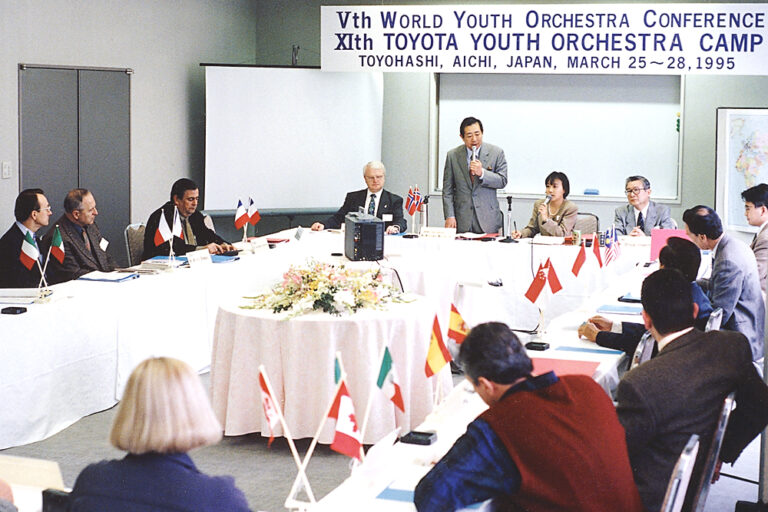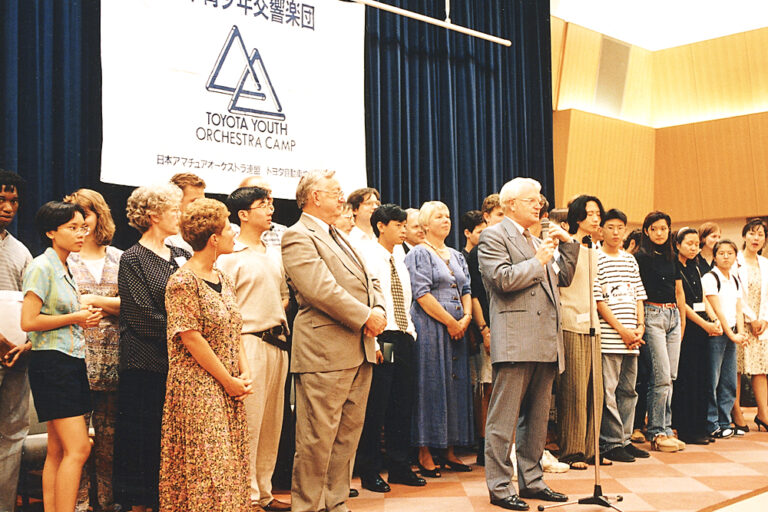<Chapter 8> Activities of International Exchanges (1)
“You will be able to overcome language, racial, and geographical barriers if you have a music score and an instrument with you. There is no better literacy of international exchanges than an orchestra.”

With the start of exchanges among directors for youth orchestras since 1991, we have organized four international youth orchestra festivals so far. I felt confused by misunderstanding and preconceptions, encountered excessive pride, vainness, and prejudice, but the simple curiosity and desire to meet new people and to tell them our activities pushed me forward.
WFAO has established ties with more than 23 countries; we met wide range of youth orchestras and ensembles from old traditional country like Germany and from slums of Johannesburg in Africa.
You will be able to overcome language, racial, and geographical barriers if you have a music score and an instrument with you. There is no better literacy of international exchanges than an orchestra. The day will definitely come; the day, which people who have never seen or touched the violin no longer are the minority, and the day when people can freely speak of orchestra as the global language.
(June 2008)
WYOC Inaugural Message (March 30, 1991)
(In the spring of 1991, the Federation of Japan Amateur Orchestras (JAO) called on several leaders of foreign orchestras to meet in Japan. Representatives attended the meeting declaring the first WYOC from Japan, the United Kingdom, Norway, Belgium, Germany, Austria, the US, Singapore, and the People’s Republic of China.)
We, as leaders of youth orchestras around the globe, do hereby establish the World Youth Orchestra Conference to help promote communications and activities among affiliated groups.
We aim at promoting music practice in many countries and regions to promote the healthy development of youth.
With this in mind, we intend to develop their sense of beauty, elegance, refinement and forge their temper through orchestral practices. We understand that in this era of multiplicity, there are different values even in a country and among the same ethnic group. We are aware that international tensions psychologically affect today’s youth but we also hear the cry for a better humanistic and formative education for future generations.
With this background insight, it is important that teachers and coaches do not limit themselves to selecting the most gifted and talented young musicians, but rather aim at the full development of musical sensibility and human development in a broader sense.
It is with this objective in mind that we aim at developing a sense of value in young people since it will increase their feeling of identity as well as the capacity to see through world’s complex realities.
Now that the 20th century is ending and we are at the doorsteps of the 21st century, we need to intensify our efforts to widen our horizons and respectfully search to improve our network, cooperation and respect for the education and formative processes for new generations. This will be achieved through new friendships and cultural activities that will open new prospects for all young people in the world.
We confirm the effort to hold a World Youth Orchestra Festival ’93 in Nagoya City, Japan for the purpose of making communication and exchanging information available to youth orchestras and their leaders throughout the world.







